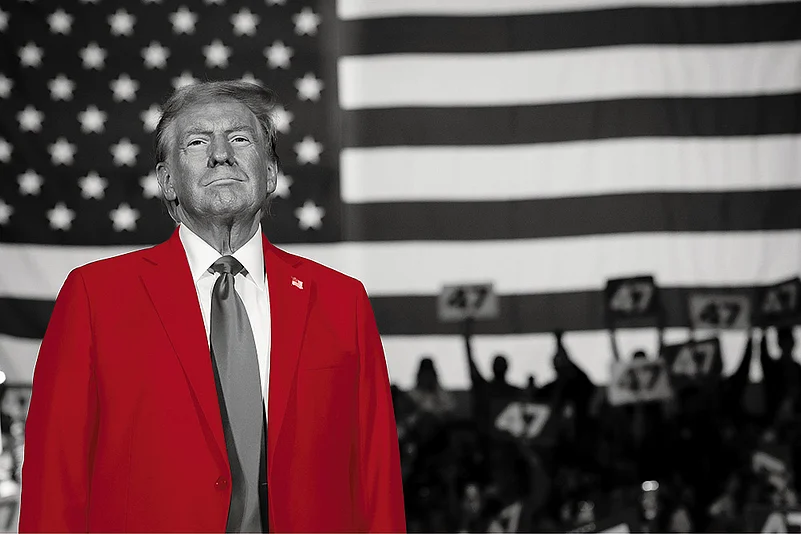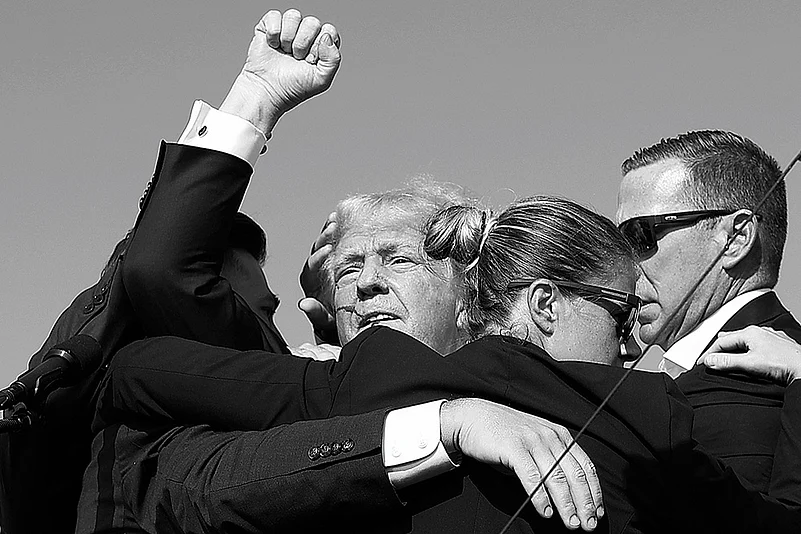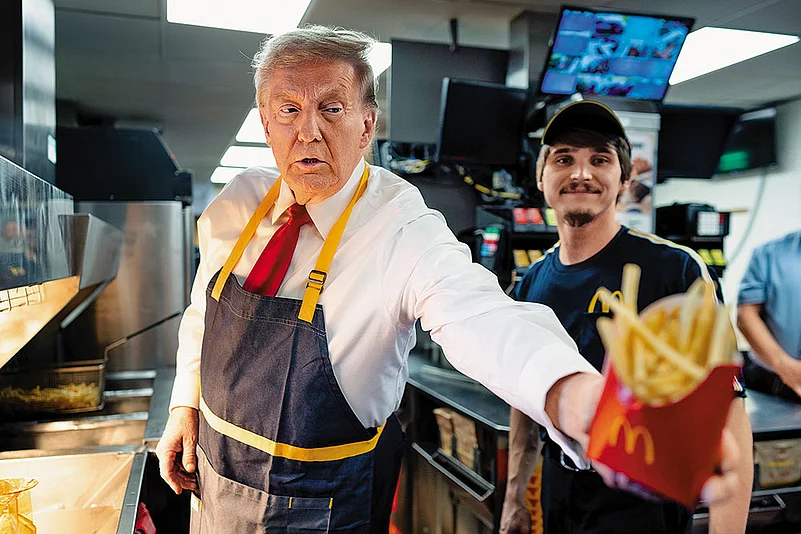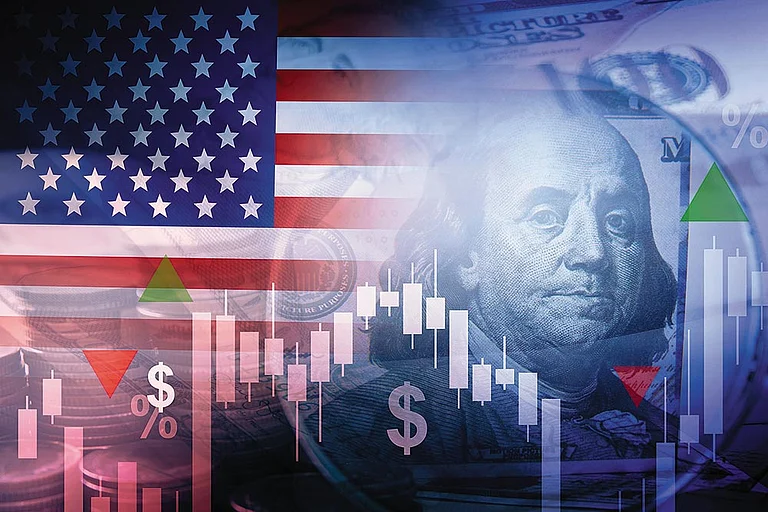It’s January 6, 2021. Hundreds of people barge onto Capitol Hill in Washington DC, causing damage to public property, assaulting the police and crying foul about the election, which the incumbent president, Donald J. Trump, apparently lost. The violence on Capitol Hill sent shockwaves across the United States and the world and kicked off the largest investigation in the Federal Bureau of Investigation’s (FBI) history. One would think an incident like this would end one’s political career in America. Fast forward to 2024. Trump is now on his third bid for the presidency and is predicted by several research organisations to win and edge out the Democratic candidate, Kamala Harris.
The Resurgence Of Donald Trump
If Donald Trump wins the US presidency, the first question to ask would be-—how did we even get here?

Why does Trump, one of the most divisive figures in history, command such a hold on the minds of Americans? His rise to power in 2016, his shock win over Hillary Clinton to clinch the US presidency and his renewed bid against another female candidate is making us question as a society as to whether we even know each other in the first place.
When Trump first came into the political scene, announcing his presidential candidacy on a sunny day in New York in 2015, a lot of people didn’t take him seriously. “We are going to make our country great again!” he announced to a cheering crowd. Basing his campaign on anti-immigration policies, opposition to trade agreements and other issues, and promises as absurd as building a “big beautiful wall” on the border with Mexico, he became the instant favourite and a crowd puller at his campaign speeches. In 2016, the liberal left of America stared in horror as Trump won the electoral vote and edged out the fiery Clinton, who was banking on becoming the first woman president of the US.
While I don’t want to dwell a lot on Trump’s first term as president, the end was rather harsh for him, as the COVID-19 crisis took over the world and with that, Trump’s hold on the American consciousness. From denouncing COVID-19 to fuelling anti-vaccination sentiments, Trump’s supporters showcased an extreme version of themselves that became unpalatable to everyone across the world dealing with the adverse effects of the pandemic.

Soon, that support group became a minority, and calls began for change. Enter Joe Biden with his running mate, Kamala Harris, a Black and South Asian woman, who promised America the change it needed. With Biden taking over presidency in 2021, the world hoped for a less dramatic and unpredictable US president. But Biden’s legacy was marred by the war in Gaza, that has been going on for over a year and has no end in sight.
Over the past three years, Trump has focused on identifying certain issues that flare up people’s consciousness and has focused his campaign on those issues. He has identified economy, rising prices and a housing crisis as important issues and is promising a return to power for the American economy.
Economists are crying foul, claiming that the US economy has never been better. But it’s also true that we are in debt, and the debt is so massive that it will herald an eventual fall for the American economy.
Inflation in big cities like San Francisco and New York is at its peak. Rents are rising disproportionately to salaries, and homelessness is rampant in most major American cities. And it is true that Biden and Harris have lost the hold on the average white middle-class person, who continues to face the burden of America’s problems. The average American could care less about what they speak and a gender identity crisis among their children when they have bills and mortgages to pay.

Despite not being in power, Trump has been a significant part of the American consciousness over the past three years. He is constantly and consistently in the news—for falsifying business records to pay off an adult film star to derailing the transfer of power to Biden through the January 6 attack. In May this year, he became the first former president of the US to be convicted of a felony. He was charged with 34 felony counts of falsifying business records to pay off adult film star Stormy Daniels for an alleged sexual encounter. His sentencing has been delayed to the end of November to not interfere in the US election, but if Trump wins and is sentenced to jail time, the US might see the country run from a prison cell for the first time in history. One would read this line and wonder if they are reading about a third world country. But this is America, the beacon of democracy and capitalism. The “greatest country in the world”, according to Trump supporters.
A Head Start
Trump had a head start at the beginning of 2024 when he became the Republican party’s choice of candidate for the president. The Democratic hopeful, Biden, was, however, slowly losing support within his own party. Things came to a head in June when Biden and Trump faced off in the first presidential debate and Biden demonstrated an inability to handle Trump’s tirades. He appeared as a shell of his former self—as a fumbling old man at a loss for words with a raspy voice that showcased under confidence.
Soon, videos started circulating of Biden mixing up names and committing blunders like introducing Ukrainian president Volodymyr Zelensky as Vladimir Putin. The Democratic party was divided over his nomination and calls began for him to drop out of the campaign. Biden soon dropped out and named his vice-president, Harris, as the presumptive Democratic nominee.
Harris showed promise initially, garnering support from celebrities like Taylor Swift and billionaire Bill Gates, and even putting Trump in a spot in their first public debate. Polls after the first Harris-Trump debate showed both of them tied across battleground states such as Arizona and Pennsylvania. Trump then resorted to what he loves—hurl insults at his enemies. From calling Harris “crazy” to “comrade”, he upped the ante on insults.
At a journalism conference in July, Trump suggested Harris was playing the ‘Black card’ for votes. “I didn’t know she was Black until a number of years ago when she happened to turn Black, and now she wants to be known as Black. So, I don’t know, is she Indian or is she Black?” he said.
Things also seemed to take a turn for the worse for Trump when videos resurfaced of his running mate, J.D. Vance, saying the US was being run by “childless cat ladies”. Harris supporters were quick to point out that her step children were her children as well, and Vance’s comment was a direct hit on women’s rights in a country that’s already reeling from the scrapping away of a woman’s basic right to have an abortion.

“People are deeply emotional about their beliefs because their political views have become intertwined with their identities. For many, attacking their political stance feels like a personal attack, and the polarised media landscape reinforces this by painting political opponents as enemies rather than fellow citizens. In this election, with a woman of colour facing off against a historically divisive figure like Trump, these emotions are likely to be heightened even further. The stakes are seen as existential, and many voters may feel that their very identity and future are tied to the outcome of the election. The intersection of race, gender and political power have undoubtedly already made this election emotionally charged, with disinformation playing a key role in how voters perceive both candidates,” said Andrea Kalin, the director of the film Public Defender. Kalin’s film is about the relationship between a liberal public defender in Washington, DC, and her clients caught up in the January 6 Capitol attack.
But American elections, like our Indian ones, are hard to predict. The pendulum seems to be swinging in one direction, before swerving in the other. Trump (and Republican supporters) have created spaces like Truth Social and Twitter (now X) to parade their tirades against the Democrats.
Billionaires like Elon Musk now use X as a platform to target Harris and Biden and openly pledge support for Trump. And the pendulum again seems to be swinging in favour of Trump. There is an undercurrent of fear in the US, and people are slowly starting to see that Harris’ policies are also similar to those of Trump. Both Trump and Harris prefer protectionism, want tax cuts, support fracking and stronger immigration laws and support a war in the Middle East.
But this election is not being fought on policies. It’s being fought to capture the minds of Americans. Trump has already done that. He has successfully moved people’s attention to topics like Haitian immigrants eating people’s pets and the rise of wokeism. “Trump’s appeal lies in his ability to speak directly to the grievances and fears of many Americans. He presents himself as an outsider who fights against a system perceived to be rigged, providing simple solutions to complex issues. For many of his supporters, Trump represents a figure who is willing to challenge the establishment and speak truths, as they see it, that other politicians avoid. His defiance in the face of legal challenges and controversies only reinforces the notion that he is a victim of the same forces they feel oppressed by. Trump’s success lies in his ability to craft a narrative where loyalty to him equates to loyalty to their version of America,” said Kalin, the director of Public Defender.
Who we elect may not make a major difference to the lives of the privileged, but another Trump presidency might mean the end of the road for millions of undocumented immigrants in America and the stifling of the press and free speech. It would mean a deal with Putin over Ukraine, effectively letting Russian tanks roll over more of the country. It would mean a question mark over the future of NATO and probably a never-ending war in the Middle East, which is looking to spiral out of control. Trump’s America means making a nation great by closing it off to the world. Another Trump presidency will change America—forever.
(Views expressed are personal)
Ankita M. Kumar is a journalist and a documentary filmmaker based in San Francisco, California
(This appeared in the print as 'Divide and Run')
-
Previous Story
 UNGA Votes For 'Immediate' Ceasefire In Gaza; Israeli Forces Continue To Attack Syria | Latest On West Asia
UNGA Votes For 'Immediate' Ceasefire In Gaza; Israeli Forces Continue To Attack Syria | Latest On West Asia - Next Story
















